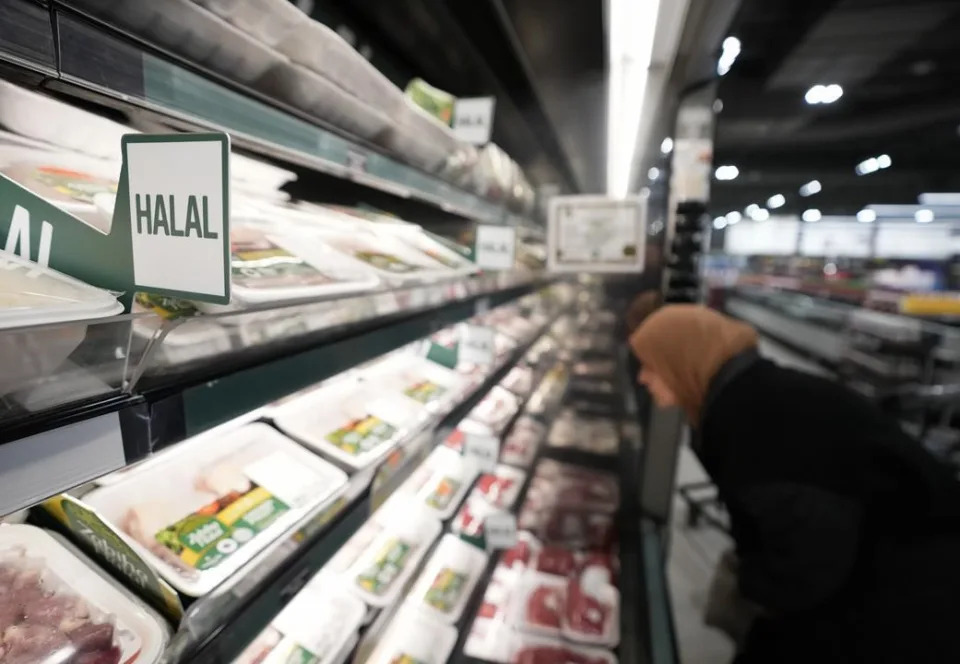W.Va. Farmers Aim at Growing Muslim Market
Friday, January 23, 2009
By Tom Breen, Associated Press
South Charleston, W. Va. (AP) – In a room where farmers in camouflage baseball caps and John Deere jackets mix with women in head scarves, Larry Gardner is scolding himself for forgetting Ramadan last year.
After 30 years raising lambs, the Waverly farmer is learning something new about the business. There’s a growing demand in West Virginia for sheep and goats from Muslim residents tired of traveling hundreds of miles for meats prepared in accordance with their faith’s dietary requirements.
At the same time, West Virginia’s farmers are eager for new customers.
Putting these two constituencies in the same room at South Charleston’s Islamic Center was largely the work of Almeshia Brown, an agriculture and natural resources specialist at West Virginia State University Extension Service, who is also a Muslim.
Tired of using the Internet to buy groceries, Brown saw the seminar as a chance to supply a growing ethnic market and bring new customers to state farmers.
About 60 people — farmers, grocery store owners, an imam and a rabbi — met recently for a seminar on getting West Virginia meat onto the tables of Muslims, which included a crash course on halal.
Meaning “lawful” or “permitted,” halal encompasses far more than food. But in dietary matters, it establishes which animals can be eaten and how they must be slaughtered — conscious, upright, the throat cut and the blood drained.
At first glance, West Virginia seems an unlikely laboratory for such an experiment. With only a handful of mosques, few people here make big plans for Eid al-Fatr, which concludes the sacred month of Ramadan, or attend many aqeeqahs, a ceremony held after a child’s birth.
“If you look at West Virginia’s population as a whole, you’re just a bunch of white people who come from Northern Europe and don’t eat sheep or goat,” Susan Schoenian told the crowd. Schoenian is a sheep and goat expert with the University of Maryland Extension Service.
West Virginia’s demographics are atypical — with a population roughly 95 percent white, it’s one of the least diverse states in the country.
But there are pockets of the state — Charleston, the university towns of Morgantown and Huntington — where the Muslim population is growing.
On average, American Muslims are younger, better educated and more affluent than their non-Muslim neighbors, which is music to a marketer’s ears.
“There’s more demand than supply here right now,” said Rich Durham, who once raised goats and sheep in Pinch and is getting back into it.
Durham’s wife, Pam, also noted that the relatively small market in West Virginia is a good fit for “mini-farms” like hers.
Exporting the meat to states with larger Muslim populations is not an option yet. Until recently, federal law banned interstate shipment of meat that hadn’t been inspected by the U.S. Department of Agriculture, which typically happens only at larger plants.
Although the law has changed, federal rules allowing more interstate commerce haven’t been formulated yet, said West Virginia Department of Agriculture spokesman Buddy Davidson, so the old prohibition remains.
Even in West Virginia, though, there’s growing demand. Families routinely call Imam Ehteshamul Haque, the spiritual leader of the local Muslim community, looking for lambs or goat on special occasions such as Eid al-Fatr or for an aqeeqah.
Right now, Haque has to find a Muslim or halal-friendly butcher in another state. Generally, they won’t do business unless it’s a large order.
“Sometimes they come late, sometimes they bring stuff we don’t want,” Haque said.
Ahmed Barkiya, owner of Barakah International Groceries in Charleston, makes twice-monthly trips to Detroit to meet his customers’ demand for halal meats. The seminar let him meet local suppliers, and get a statewide directory of farms.
Supplying the animals is important, but there are still problems, especially when it comes to the actual slaughtering. Animals killed for halal meat can’t be processed in slaughterhouses at the same time as swine, which is forbidden for Muslims.
In the absence of a halal slaughterhouse among West Virginia’s 24 state-inspected abattoirs, there’s the option of “on-farm slaughter,” in which a customer buys the animal, kills it and butchers it on the farm.
It can be done, but as Schoenian told the crowd, “No one likes to know you’re killing a goat in your garage.”
If farmers see enough of a boost in business from the halal market, though, they can think about investing in things like mobile abattoirs. For the time being, the people in baseball caps and the people in head scarves just seem pleased to have found each other.
“Today’s farmer has to adapt,” Gardner said. “If you try to do business the way you did 30 years ago, you’re going to be left behind.”



